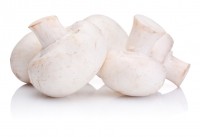UK teens not meeting adequate vitamin D levels, researchers find

A collaboration between academics from the United Kingdom, Denmark and Ireland believe that the low levels of vitamin D seen in adolescents may be due to less time spent outdoors — and subsequently less exposure to the sun — when compared to younger children.
Countries in the northern hemisphere also have to contend with low vitamin levels as a result of low sunlight levels especially in the winter period. Vitamin D intake via nutritional means takes on added significance.
Low vitamin D status has been widely reported in adolescents across Europe, as well as in other countries worldwide.
Aged 14-18 years, the adolescents enrolled in this study fall into a group considered especially vulnerable to vitamin D deficiency: bone growth occurs most rapidly during these teenage years, meaning sufficient levels of vitamin D are crucial in order to achieve peak bone mass by late adolescence and ward off age-related bone loss in later years.
Bone of contention

Efforts to establish a universally agreed Dietary Reference Intake (DRI) for vitamin D have proved difficult, despite much of the evidence detailing bone health outcomes.
The Nordic Nutrition Recommendations (NNR) Recommended Intake and the UK's Scientific Advisory Committee on Nutrition (SACN) Reference Nutrient Intake both proposed vitamin D intakes of 10 micrograms per day (µg/d) to maintain serum 25(OH)D concentrations of more than 50 and 25 nanomoles per litre (nmols/L), respectively, in 97.5% of the population.
In 2012, the European Food Safety Authority (EFSA) could not find any evidence that adolescents had a lower tolerance for vitamin D compared to adults.
Thus an upper intake level (UL) of 100 µg/d for adolescents aged 11-17 years taking the smaller body size into account, was proposed.
In this trial, 110 adolescents (43% males) from the UK were randomly assigned to receive a placebo, 10, or 20 μg vitamin D3 supplements every day for 20 weeks during winter.
Analytical models to assess total vitamin D intake and post-intervention serum 25-hydroxy-vitamin D (25(OH)D) concentrations as well as the vitamin D intakes required to maintain serum 25(OH)D concentrations above specific points were employed.
Results indicated a vitamin D intake of between 10 and approximately 30 ug/day were required to maintain an adequate level of vitamin D and avoid vitamin D deficiency.
"The research has found that adolescence, the time when bone growth is most important in laying down the foundations for later life, is a time when vitamin D levels are inadequate,” commented lead author Dr Taryn Smith from the University of Surrey.
ODIN project
The study forms part of a four-year EU-funded project, ODIN, which aims to investigate safe and effective ways of improving dietary vitamin D intakes through food fortification and bio-fortification.
“The ODIN project is investigating ways of improving vitamin D intake through the diet,” explained Smith.
“Since it is difficult to obtain vitamin D intakes of over 10 ug/day from food sources alone, it is looking at ways of fortifying our food to improve the vitamin D levels of the UK population as a whole."
The project has contributed to a new range of vitamin D2-enriched mushrooms that have been launched in Tesco stores in the UK.
The mushrooms have been infused with a compound called ergosterol which enables them to naturally make vitamin D when exposed to light.
Source: American Journal of Clinical Nutrition
Published online ahead of print, doi: 10.3945/ajcn.116.138065
“Estimation of the dietary requirement for vitamin D in adolescents aged 14–18 y: a dose-response, double-blind, randomized placebo-controlled trial.”
Authors: Taryn Smith et al.
















